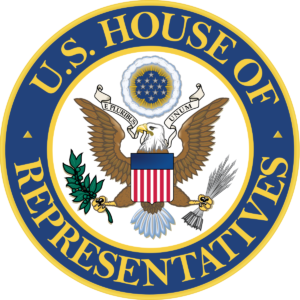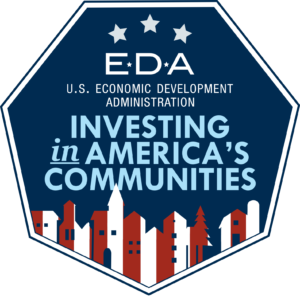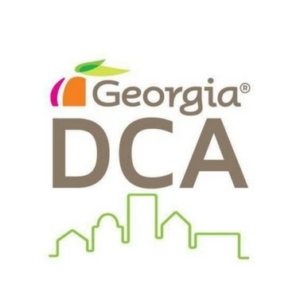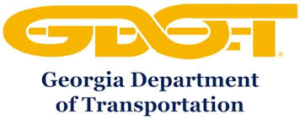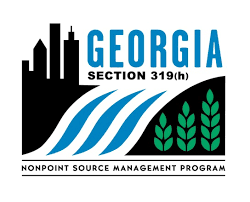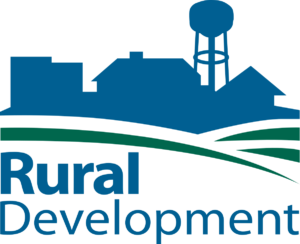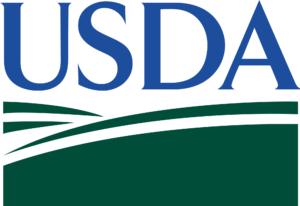In addition to our engineering consulting services, GWES is also capable of assisting our clients in developing opportunities for funding and planning resources. We have broad and proficient experience in providing pre- and post-award services that include, but are not limited to, application assistance, preparing preliminary engineering reports, environmental impact documents, planning documents, intergovernmental coordination, program administration, planning, design, cost estimating, bidding, contracting, construction oversight, quality control, and project closeout that will utilize funds from multiple funding avenues. GWES has provided the following list of potential funding opportunities that a municipality can utilize to fund future infrastructure and planning projects:
Infrastructure Investment and Jobs Act – H.R. 3684
As of Friday November 5, 2021, the US House of Representatives has passed a $1 trillion infrastructure bill, which will provide funding for, among others, transportation, water, and wastewater projects. While funding opportunities may not become available until the later part or 2022 or even 2023, the City may wish to identify candidate projects. GWES is prepared and equipped to assist the City in positioning itself to take advantage of this opportunity. The information below provides general descriptions of the transportation and clean water components of the bill:
- The bill provides $110 billion to repair the nation’s aging highways, bridges, and roads.
- The legislation will spend $55 billion on water and wastewater infrastructure. The bill includes $15 billion to replace lead pipes.
FY 2021 American Rescue Plan Act Economic Adjustment Assistance
Signed into law on March 11, 2021, this bill provides $350 billion to state and local governments to stimulate economic growth and resilience as a response to hardships generated by the coronavirus pandemic. Funds may be used for investments in water and sewer construction and non-construction projects. The Economic Development Administration (EDA) encourages applicants to submit applications no later than March 31, 2022. It is our understanding that the City has already taken advantage of this program. If not, the City would benefit from swift action to identify eligible projects and apply for funding.
Additional EDA funding options include:
Economic Development Assistance Program
- Funding for infrastructure improvements needed to support development
- Max award $3,000,000
- No current application deadlines
Community Development Block Grant (CDBG)
This program is federally funded and administered through the Georgia Department of Community Affairs (DCA). The grant focuses on benefiting low- to moderate-income people. Below is a bulleted summary of the opportunity:
- Funds can be used for infrastructure improvements in low- to moderate-income areas.
- Funding is often contingent on a “smoking gun” (i.e., Homes have burned down because water system improvements are needed? Sewage is backing up into homes. Flooding issues.).
- Maximum grant amount is $750,000; local match requirement is a minimum of 5%, but more match funds make an application more competitive.
- Applicants are eligible for CDBG funding every other year; however, those communities with PlanFirst, WaterFirst, or Revitalization Area Strategies designations are eligible every year.
- Applications are due April 1.
- Eligible project lists are usually release around August.
Additional DCA funding options include:
Employment Incentive Program (EIP)
- Driven by JOBS – specifically jobs for low-to-mod individuals
- Provides funding for infrastructure improvements needed to support new jobs or maintain existing jobs (must be 51% low to mod jobs)
- Grant is usually 10,000 per job generated, maximum $750,000
- Applications accepted anytime
- Applicant must be a city or county
One Georgia – Equity Fund
- Funding for water and sewer infrastructure, road, rail and airport improvements, industrial parks, workforce, technology, and
- Usually driven by development or potential development
- Grant amounts are based on the number of counties affected and vary from $200,000 maximum for 1 county to $500,000 maximum for 3 counties or
- Considered “funding of last resort” to be used when no other public or private funding is
- Applications are accepted quarterly in April, July, October, and January
Immediate Threat & Danger Grant (ITAD) Grant
- Funding for emergency situations when applicant doesn’t have funds available funds – example – a sewage lift station goes down and the applicant has no funds to replace the pumps
- Maximum funding $50,000
- Applications accepted anytime
Redevelopment Fund (RDF)
- Funding for “slums and blight” specific criteria – commercial, downtown, industrial redevelopment, and revitalization projects
- Applications accepted anytime
- Maximum Grant $750,000
Local Maintenance and Improvement Grant (LMIG)
Funded and administered by the Georgia Department of Transportation (GDOT), these funds are allocated each year to cities and counties based on the total amount of centerline road and total population. Cities and Counties in the River Valley Region, such as Americus, are responsible for providing a 10% match to obtain LMIG funds. While these funds are often directed toward repaving projects, they may also be used in preliminary engineering and construction supervision and inspection. GWES’ staff has extensive experience in managing LMIG projects and is currently assisting Brantley County with construction supervision and inspection as part of an LMIG repaving.
Additional GDOT funding options include:
Transportation Alternatives Program
- Funding for pedestrian facilities, bicycle facilities, and pedestrian streetscaping projects
- Limited to communities with populations greater than 5,000 but less than 200,000
- Minimum amount requested is $1,000,000 (can be the sum of preliminary engineering, right-of-way, and construction)
- At least one phase must be ready for funding to be authorized in any particular fiscal year
- Application deadline – June 15th
WaterFirst Designation
Assigned by the Georgia Environmental Finance Authority (GEFA), this designation demonstrates a local government’s commitment to responsible water stewardship for environmental and economic benefits.
WaterFirst benefits include:
- 1 percent interest rate reduction on GEFA loans
- Annual eligibility for water-related project applications to the Community Development Block Grant (CDBG) Program
- Priority status for the 319(h) Grant Program administered by the Georgia Environmental Protection Division (EPD)
To receive this designation, a community must meet several criteria related to water management and protection locally and regionally including stormwater, wastewater, and water supply. The community must also pass an onsite review.
Additional GEFA funding options include:
State Revolving Fund (SRF)
- Low Interest Funding (with possibility of principal forgiveness “grant”) for storm sewer, sanitary sewer, and drinking water
- Preapplication deadline – December 31st
- Projects scored based on environmental/efficiency benefit and project readiness (environmental permitting status) and placed on a fundable list from highest score to lowest
- Principal forgiveness is granted for some projects based on Affordability Criteria (MHI, Unemployment rate, and Population Trend). If the area is poor with a high unemployment rate, and population is trending down, principal forgiveness is nearly guaranteed. Principal forgiveness is granted down the fundable list (generated from project scores) until the funds are
- Interest rates based on term and funding program. Rate sheet is attached. Rate reduction is given for energy conservation projects, waterfirst communities, and planfirst communities
- American Iron & Steel (AIS) Act is followed
- Davis Bacon Wage Rates, Certified Payrolls, Labor Interviews, etc are required
- 30–40-year terms available. 40 years only available for drinking water projects in disadvantaged communities
Clean Water SRF (CWSRF)
- Funding for storm sewer and sanitary sewer projects
- Principal forgiveness (if awarded) is 25-45% of project cost (dependent on Affordability Criteria score) with a maximum of
- $750,000 – $1,000,000 (again dependent on Affordability Criteria score).
Drinking Water SRF (DWSRF)
- Funding for drinking water projects
- Principal forgiveness (if awarded) is 30-50% of project cost (dependent on Affordability Criteria score) with a maximum of
- $750,000 – $1,000,000 (again dependent on Affordability Criteria score).
Georgia Fund
- Low Interest Funding (not as low as SRF)
- No Principal Forgiveness
- Apply anytime
- No AIS or Davis Bacon requirements
- Typically used for economic development and emergency project
Water Resources Development Act
The Water Resources Development Act (WRDA) is a bill that authorizes and provides funding for US Army Corps of Engineers (USACE)-related water projects (i.e., improving navigation, reducing flood risk, and restoring aquatic ecosystems). The bill typically passes every two years and includes a list of projects that senators have submitted for consideration. The Senate Committee on Environment and Public Works is asking municipal and state leaders to submit projects they believe are a priority for the community and for which they are willing to allocate a 50% match. Getting a project on the list is a necessary step but does not guarantee funding. The municipality will also need to be willing to conduct a feasibility study, as funding for the project may be contingent upon one. Municipalities should make sure their projects are within the scope and responsibility of USACE; contact USACE to confirm if unsure.
Predevelopment Planning Grant (PPG)/Search Grant
Grant is used to pay for costs associated with submission of a complete application for a water or wastewater disposal loan/grant through USDA. These costs include preparation of preliminary engineering and environmental reports, submission of project application in RD Apply.
- Applications accepted anytime
- These grants are a pretty easy sell for communities! They don’t have much skin in the game to cast this out there and see how good their terms would be for a water/sewer loan/grant from USDA-RD
- These grants are based on community size. Population under 2,500 is Search Grant, 2,500-10,000 is PPG
- Area to be served must be below poverty line or 80% of the statewide, non-metropolitan MHI (which used to be around $39k)
- PPG will fund up to $30,000 or 75% of planning costs with community responsible for other 25%. Search grant will fund $30,000 with no required match from
Additional USDA Rural Development funding options include:
Water & Waste Disposal Loan & Grant Program
- Loan/Grant Program for drinking water, sanitary sewer, solid waste, or stormwater
- Limited to communities with populations under 10,000
- Grant amount is based on project details and available funds
- Low interest loan with 40-year terms
- The USDA loan process is grueling…this becomes a better option for larger projects where a longer payback is

